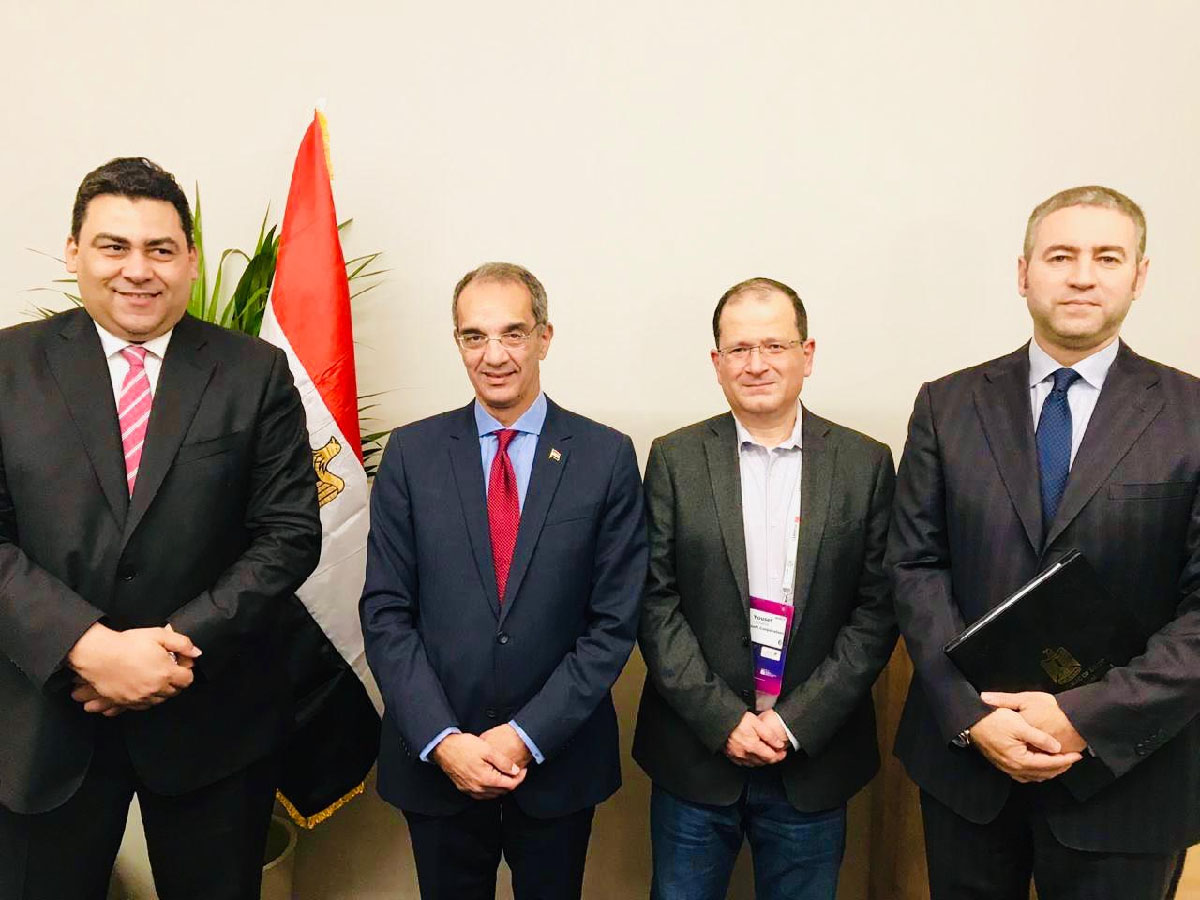

Microsoft collaborates with Telecom Egypt to announce its first cloud network in Egypt
During MWC Barcelona 2019, Microsoft Corp. and Telecom Egypt announced their collaboration to extend Microsoft’s cloud network to Egypt. Telecom Egypt will provide low-latency connectivity into and across Egypt to help enhance performance and increase reliability for customers of Microsoft services. The collaboration will increase Microsoft’s reach to the large Egyptian market in addition to improving connectivity across North Africa and the Middle East.
Microsoft’s global network is one of the largest and most innovative in the world. It connects Microsoft’s cloud infrastructure of more than 100 datacenters, 135 edge node locations, and more than 100,000 miles of fiber and undersea cable systems to deliver Microsoft services to customers. The new point of presence in Egypt will benefit from a direct connection to Microsoft’s global infrastructure to enhance the delivery of numerous services for customers. Microsoft’s network investment will increase capacity and use the latest in network optimization for the delivery of Microsoft services in Egypt.
The signing of the agreement was witnessed by Dr. Amr Talaat, Minister of Communications and Information Technology of Egypt, who said:
“Egypt is moving towards achieving a promising digital transformation strategy to build a strong economy. The Ministry’s commitment to the development of the ICT industry in the country is in line with the Egypt Sustainable Development strategy 2030. The Ministry appreciates partnerships that empower local institutions and drive business development.
It is important to take full advantage of the unique geographical location of Egypt overlooking the Red Sea and the Mediterranean, which enables the country to become a regional digital hub.” He added.
Yousef Khalidi, corporate vice president, Azure Networking, Microsoft said:
“Through our collaboration with Telecom Egypt, we are extending Microsoft’s global network in Egypt and improving connectivity across North Africa and the Middle East. We are continuously investing to increase the size, speed, reliability and intelligence of Microsoft’s global network to help enable the digital transformation of organizations and enterprises locally and abroad.”
Telecom Egypt’s global network was built over the years through investments in consortiums and private international submarine cable systems. Its reach and position as an international hub with tens of terabits per second lit capacity makes it the partner of choice for content providers. Egypt’s distinctive geographic location on the Red and Mediterranean seas has enabled Telecom Egypt to connect more than 11 cable systems from the east and 13 from the west linked with the Red-Med Corridor consisting of 7 diversified highly reliable routes across Egypt.
Adel Hamed, Telecom Egypt’s Managing Director and Chief Executive Officer said:
“We are pleased to partner with Microsoft as it represents one of the first steps toward our strategic digital transformation plan.
Telecom Egypt’s geographical position and its digital infrastructure will enable major cloud providers such as Microsoft to enhance their reach to consumers and enterprises in Egypt as well as reach other markets.”
Khaled Abdel Kader, general manager, Microsoft Egypt said:
“Microsoft is committed to providing world-class cloud services to enable and accelerate the digital transformation of organizations, businesses and people in Egypt. Our collaboration with Telecom Egypt and Microsoft’s investment in the country will further empower Egypt to achieve more through Microsoft services.”
The new enhanced network presence in Egypt will connect via Microsoft’s global network to transatlantic and trans-Arabian paths, which will improve connectivity across North Africa and the Middle East, including enhancing connectivity to the new Microsoft cloud regions in development in South Africa and the United Arab Emirates.
